Photographs: Reuters B Raman
My attention has been drawn to a disturbing documentary titled Sri Lanka's Killing Fields produced by Jon Snow of the Channel4 TV channel of the United Kingdom.
The documentary highlights the results of a forensic investigation into the bloody culmination phase of the counter-insurgency operations of the Sri Lankan Security Forces against the Liberation Tigers of Tamil Eelam in April-May, 2009.
It alleges that the culmination phase, which physically wiped out the leadership of the LTTE for which no right-thinking person opposed to terrorism need shed tears, was also marked by executions, shelling of civilians and other atrocities carried out by the security forces.
...
Lankan Tamils: Inaction is not an option for India
In the culmination phase, the Sri Lankan security forces did face a cruel dilemma because the ruthless leadership of the LTTE headed by Velupillai Prabakaran was making a last-ditch effort to save itself from capture or killing by taking shelter in the midst of civilian refugees.
It was not an opportunistic tactic in the face of the mounting pressure from the security forces. It was a consciously-planned tactic of Prabakaran to force the international community to intervene by creating a situation in which hundreds of civilians were used as cannon fodder in a futile attempt to save the LTTE leadership from extinction.
Lankan Tamils: Inaction is not an option for India
Two kinds of violations were alleged. Firstly, that the leaders of the LTTE, including Prabhakaran, wanted to surrender but were not given an opportunity to do so, but instead were physically eliminated.
Secondly, that the security forces consciously used disproportionate force with light, medium and heavy weapons knowing fully well that such use could kill many civilians. Protecting the civilians caught was not on the agenda of either the LTTE or the security forces.
Lankan Tamils: Inaction is not an option for India
The Sri Lankan government headed by President Mahinda Rajapaksa has strongly and consistently denied these allegations. While it admits the possibility that there might have been some violations to determine which it has been holding its own enquiry, it has indignantly refuted the allegations that the violations were of such a serious nature as to call for international intervention and action.
Unfortunately, human rights violations are rarely avoided in counter-insurgency situations however much the security forces try to do so.
Terrorist and insurgent organisations train themselves well in creating situations where human rights violations do occur in order to seek the intervention of the international community.
Lankan Tamils: Inaction is not an option for India
What distinguishes a civilised and responsible government sensitive to the rights of its civilians from a government which is totally insensitive to the human rights dimensions of counter-insurgency operations is that the former takes cognisance of the allegations instead of summarily rejecting them, enquires into them and takes the follow-up action warranted by the results of the enquiry.
That is what the Sri Lankan government has promised to do. Should it be trusted to do justice to the Sri Lankan Tamils or should it be distrusted and pressured to let the enquiry and follow-up action be handled by an international mechanism set up under the auspices of the UN?
While there were obviously serious violations, evidence available till now do not bear out the stand of those who accuse the Rajapaksa government of violations amounting to crimes against humanity or war crimes.
Lankan Tamils: Inaction is not an option for India
In our anxiety and sympathy for the legitimate rights of the Sri Lankan Tamils, we should not exaggerate or over-state our arguments in support of or against an international enquiry.
The Sri Lankan Tamil diaspora, which has been active in demanding an international enquiry, has stepped up its pressure on governments and non-governmental personalities, including reputed journalists of India and other countries, to take cognisance of the forensic evidence collected by the documentary and support the demand for an international enquiry.
The Indian government should pay serious attention to the alleged evidence produced by the documentary and have it examined by our legal and humanitarian experts in order to see whether the documentary needs to be taken up officially and at the bilateral level with the Lankan government and, if so, in what manner and for what objective.
Lankan Tamils: Inaction is not an option for India
The objective should be to ensure that justice is done to the relatives of the victims and that the honour of the victims is respected even if it be posthumously. It should not be to use the documentary as a stick to beat the Lankan government with.
The Rajapaksa government will facilitate a more meaningful Indian role in calming the feelings of indignation and concern of the Sri Lankan Tamils if it handles the documentary with the seriousness it deserves.
Inaction is not an option for the government of India. But action should be within acceptable limits of our bilateral relations with Sri Lanka and should not be overdone.
The writer is Additional Secretary (retd), Cabinet Secretariat, Government of India

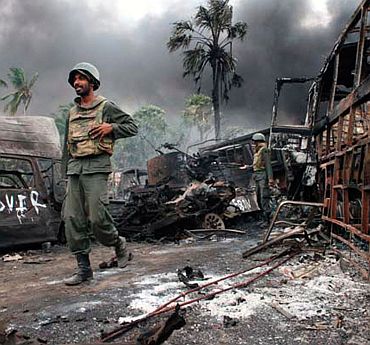
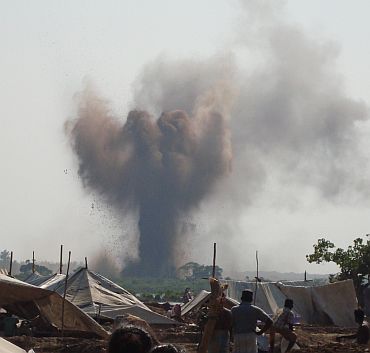

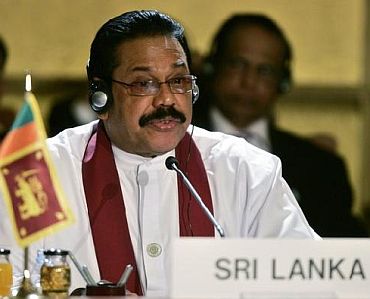
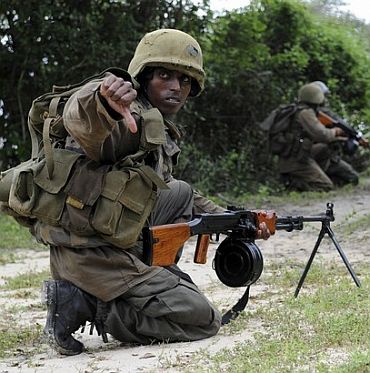
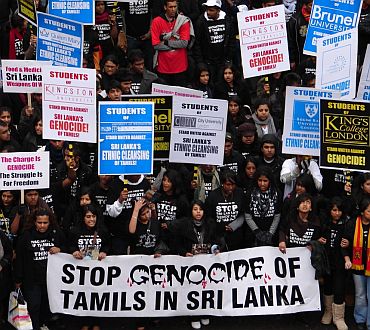

article